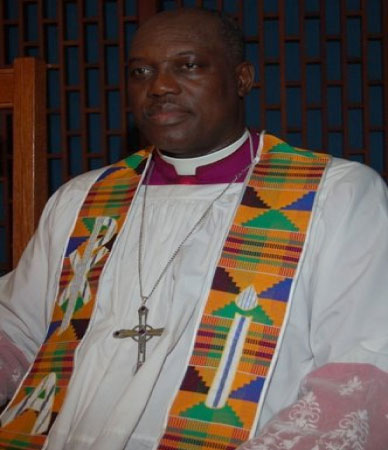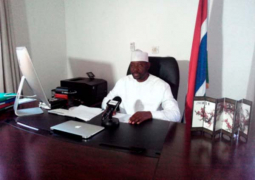
Dear Reader,
Today we celebrate a major festival in the Christian Church – the Feast of the Resurrection – Easter Day.
Today we celebrate the time when God showed His immense love for us – His love for humankind and for the world. In the form of a man – Jesus – God lived among us. Jesus came to point the way to God (whom he called “Father”). Jesus’ popularity and passion for truth and justice put him at odds with the authorities of the day – particularly some of the religious leaders.
He was unjustly put to death. However, on the third day he rose again. Through all this, we have the chance to be forgiven and, receive abundant and eternal life. Our relationship with God, which was spoilt at the Fall of humankind, has been repaired. Through the life, death and resurrection of Jesus we can again come into the presence of God.
This great gift from God to His people is a high point in our relationship with God. A major message we receive at this Easter time is HOPE. However dark life may seem, we can believe there is always hope. Throughout the scriptures we can read of God’s saving purpose for His people, which culminates in the death and resurrection of Jesus. God is always ready to provide for our needs. We need to be ready to receive the good gifts He offers.
When we look at our world it is sometimes possible to wonder where there is any hope. We see natural disasters. We see war. We see poverty. We see hunger. Some of the disasters we witness are of natural causes – such as earthquakes. However, many Disasters are human-made. War and conflict arise from a human greed in the quest for power and material wealth. The poverty of so many of our brothers and sisters is the result of the greed of a few. Whilst a small minority can live with an amoral level of wealth, literally millions of people survive with inadequate access to food, shelter, sanitation, health care and education. People die of poverty. There must be something wrong in our world when the welfare gap is so vast. There must be something wrong when people cannot afford adequate and nutritious food to eat. Such injustice cannot be the will of God. Our holy scriptures have something to say to us on this.
After their liberation from Egypt, the children of God spent some time in the wilderness before reaching the land of Canaan. They needed food. So,
“The Lord said to Moses, ‘I will rain down bread from heaven for you.
Each day the people shall go out and gather a day’s supply,
so that I can put them to the test
and see whether they will follow my instructions or not’.”
(Exodus 16: 4)
The ‘instructions’ spoken of can speak to us even today. Each person was to gather only as much food as they could eat for that day – in faith that sufficient would be provided on subsequent days. Those who disobeyed found that any surplus just rotted and was inedible. Are we good at only taking sufficient to satisfy our need? Or is there a danger of wanting to satisfy our greed as well?
It is a wonderful picture – that God is going to “rain down bread from heaven”. We see it as the fulfilment of a promise of God. God’s promise to feed His people. A food that costs nothing. The New Testament equivalent could be seen as the feeding of the five thousand. Jesus states that these people should be fed – no argument! When his disciples say it would cost a year’s wages to feed such a crowd, Jesus says, “Well you feed them then.” Money should not be an obstacle to having food!
A people totally dependent on God – such as those we hear of here in the wilderness – those who are not dependant on a money economy - are fed by God. Every person, regardless of rank, is fed to their satisfaction. Our human-made economic systems have vastly distorted such a pure and just system. In today’s world, food can be available, but people do not have access to it due to its price.
In today’s world, wealthier and more powerful countries can dictate international trade and economic systems, which work against poorer countries. However, we do have to live in the world in which we find ourselves. In accepting this, we should also understand that we can be active participants in shaping our future.
We can strive to do something about the injustice of poverty, the gross inequality of access to adequate and decent food, and so on.
We can work together to produce affordable food. We can work together to establish a just marketing system. We can discuss with our wealthier partners in development to create a more just international economic system.
Poverty and hunger, with unnecessary sickness and death, are a part of our present day “Good Friday” – a time of darkness and hopelessness. A large part of the problem is human made. So there should be a human solution. The situation is not without hope, and development efforts in poorer countries are a sign of this. This is the hopefulness of Easter Day. There can be a brighter future. In order to make such a future a reality, we are called to be co-workers with God to bring in the justice of God’s Kingdom here on earth.
There is indeed a new world in the making, all we need to do is to cooperate with our Triune God of renewal and transformation.
It is my prayer – today, on the Feast of the Resurrection – that we may all be able to see hope in our lives.
On behalf of all Anglicans in The Gambia, Senegal and Cape Verde, we wish you the peace and joy of Easter - today and always.
Your friend and Bishop
DR. S. TILEWA JOHNSON BISHOP OF GAMBIA
+ Tilewa



